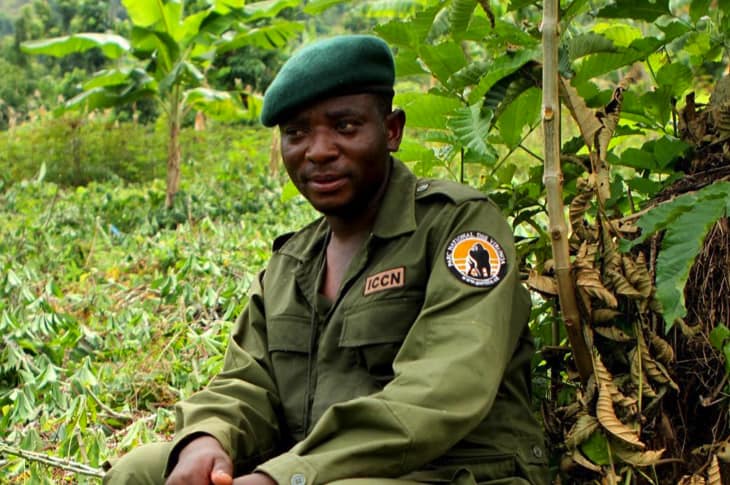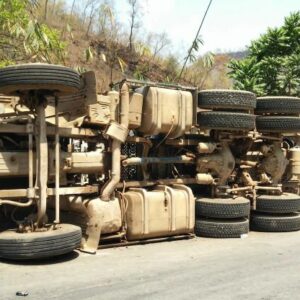
The life of a park ranger in Africa is anything but glamorous and, although considered an easy job in countries without sufficient risk to the areas, is actually extremely tough on those committed to the profession. One such ranger who has put his life on the line countless times since becoming a park ranger is Rodrigue Mugaruka Katembo, who is currently the director of Upemba National Park, and is a former warden of a central sector of Virunga National Park—one that is known to be at the heart of military and foreign conflicts.
Katembo has led a difficult life to say the least. In 1989, at the age of 14, Katembo was forced to become a child soldier during the Democratic Republic of Congo’s civil conflict and jumped between rebel groups for eight long years. Finally, at the age of 22, his mother helped him escape this horrible life that he was lucky to survive. Determined to make up for the opportunities he missed out on, Katembo returned to school and eventually earned a Master’s degree in biology. He was always drawn to public service, so in 2003 he became a park ranger, a career that would change his life and those around him, both human and animal.
Now, at the age of 41, Katembo has one of the most dangerous jobs in the Congo of Africa because of the constant war between the state, rebel groups, and international oil companies over the resource-rich region. Militant groups have killed more than 160 of his colleagues in the line of duty in the past 15 years, and poachers and rebel groups outnumber the park rangers 10 to 1.
“Some of them were illegally arrested, others paid the ultimate price for the protection of Virunga,” Katembo said. “They really fought with their heart to protect the park.”
Back in 2013, Katembo himself was illegally arrested and tortured for 17 days for reasons he believes are related to his attempt to block an “oil communication device” within the park. He went to work immediately after his release to show that he was not afraid to stand up for what he believes is right, and continued to run a greater risk of losing his life to this cause.

Katembo achieved international acclaim when the footage he secretly recorded as evidence of the bribery and corruption that goes on in the parks, specifically at the hands of British oil company SOCO International in this case, wound up as part of a documentary film called Virunga that was released in 2014. It was featured heavily and helped expose SOCO International and other companies, who eventually gave up their oil license in the complicated area after severe backlash.
Since SOCO left the area, hippo and elephant populations have stabilized because SOCO has stopped poaching there in an effort to devalue the area. Despite the extreme risk to his life, Katembo has always done what was right for the wildlife and the ecosystem necessary to keep the rich area thriving, never caving to bribery or saying no to an opportunity to make things better for the park.
As a result, Katembo was recently awarded with the Goldman Environmental Prize for his work in protecting Virunga National Park, which came with a no-strings-attached award of $175,000 per recipient, one for each of the 6 regions awarded each year.
Katembo has said that his only goal is to ensure the safety of the animals and people in the park by making sure that those wishing harm on them are held responsible for their actions.
“Even if I or others are not able to (make this happen),” Katembo told CNN, “then the future generations will have this information and will do it.”
In addition to poachers, gold and emerald miners pose the biggest threat to the park he is currently director of, and he hopes that he can curb some of this illegal activity in his lifetime so that the park can continue to serve as a great resource to the local communities.
“The park brings a lot of different kinds of services that are benefiting the community,” he told CNN. “For instance you have the protected fisheries where many fishermen are able to sustain their families and are able to generate income.”
Families can also access food and water through the park, which means that the safer it is to enter without armed groups posing a threat, the more families are able to thrive. Hopefully, with Katembo and thousands of other dedicated park rangers and employees, these national parks can continue to be made safer through hard work and a refusal to give into corruption.


